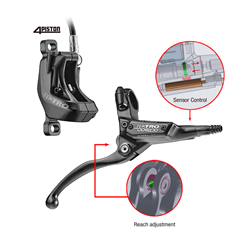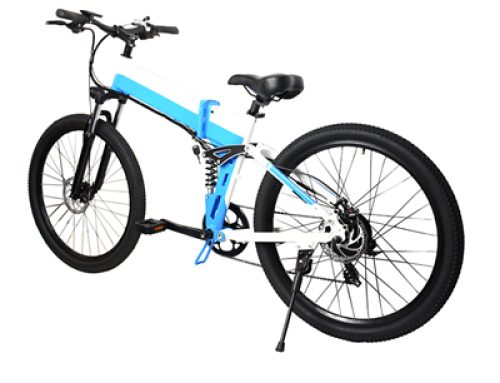Electric bikes, also known as e-bikes, offer several advantages that make them an appealing mode of transportation and recreation. Here are some of the key advantages of electric bikes:
- Effortless Riding: One of the most significant advantages of e-bikes is that they provide assistance while pedaling, reducing the effort required to ride uphill, against strong winds, or over long distances. This makes cycling more accessible to a broader range of people, including those who might be less physically fit or have mobility issues.
- Increased Range and Speed: With the assistance of an electric motor, e-bikes allow riders to travel longer distances and at higher speeds than traditional bicycles. This expanded range can make e-bikes a practical and efficient option for commuting, running errands, or exploring your surroundings.
- Eco-Friendly Transportation: Electric bikes produce zero emissions during operation, making them an environmentally friendly alternative to traditional gas-powered vehicles. They contribute to reducing air pollution and decreasing overall carbon footprints, especially when used for daily commuting.
- Cost Savings: While the initial cost of purchasing an e-bike might be higher than that of a traditional bicycle, they are generally cheaper to operate and maintain than cars or motorcycles. You’ll save on fuel, parking fees, and maintenance costs associated with vehicles.
- Health Benefits: E-bikes still require pedaling, which provides exercise and helps improve cardiovascular health, muscle tone, and overall fitness. Riders can choose the level of assistance they want, allowing them to gradually increase their physical activity over time.
- Time Efficiency: E-bikes can help you reach your destination faster compared to traditional bicycles, especially if your route involves hilly terrain or long distances. This increased speed can make commuting more time-efficient and enjoyable.
- Reduced Traffic Congestion: E-bikes can help alleviate traffic congestion in urban areas by offering an efficient and flexible mode of transportation. They can navigate through traffic more easily and may even have access to bike lanes and paths that cars cannot use.
- Flexibility in Commuting: E-bikes provide a convenient way to cover short to moderate distances without the hassle of parking. They can be combined with public transportation, allowing riders to easily commute to work or other destinations using a combination of biking and public transit.
- Less Sweating and Improved Comfort: The assistance provided by the electric motor reduces the amount of physical exertion required, which means you’re less likely to arrive at your destination sweaty. This can be particularly appealing when commuting to work or social events.
- Fun and Enjoyment: Riding an e-bike can be a fun and enjoyable experience, whether you’re using it for recreation, leisure rides, or as a means of exploring new places. The added power gives you a sense of speed and exhilaration while still being in control.
- Incentive for Non-Cyclists: E-bikes can encourage people who may not have considered traditional cycling to start biking. The electric assistance can help overcome barriers like fitness concerns or steep terrain, making cycling accessible to a wider range of individuals.
Overall, electric bikes offer a versatile and sustainable transportation option that combines the benefits of traditional cycling with the convenience and assistance of an electric motor. They can be a practical and enjoyable way to navigate urban environments, commute to work, and lead a more active lifestyle.







